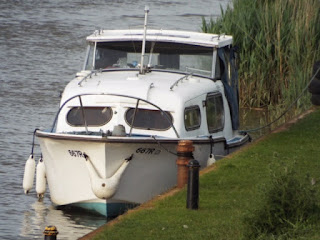 |
| 'Holly Night' by Abigail |
Dear Friends,
I told myself that I would try to avoid words such as 'unprecedented', 'lockdown' and 'Zoom' in this Christmas letter, but since such things seem to be unavoidable, you are welcome to make yourselves a bingo card and cross all such predictable words off as we go.
March (because who can remember anything that happened before March?) found Amy sitting in a Premier Inn in Coventry with a puppet, watching the news and wondering whether this might have been a bad time to attempt a tour of schools to promote her Gladstone the Gargoyle books. (Narrator: it was, indeed, a very bad time, and she got no further.) Tiffer, meanwhile, spent the month on the phone, working out how church was going to happen not just in his own four parishes, but also across the deanery. We both learned to use Zoom.
The children dealt admirably with lockdown learning, managing a daily dose of numeracy, English and what we called 'Project' which covered everything else. We did not watch Joe Wicks. Amy was reminded daily of why she gave up teaching in the first place. One of Jeremy's fractions worksheets received dozens of comments on Facebook from baffled people with degrees in mathematics.
 |
| Red, white and blue for VE day |
All travel plans cancelled, we managed a few lovely outings on the boat, fell in love with St Ives (Cambridgeshire, not Cornwall) and learned all the places on the Great Ouse where you have to watch out for swimmers. Tiffer, ever handier with the old engine, fixed an oil leak and fiddled with the stern gland. We 'drove to New Wine' by packing the car, having a drive through Macdonald's, driving home again and putting up the tent in the garden. We transformed our patio into a socially distanced outdoor living room. Jeremy and Tiffer made a Hero's engine out of a beer can over the chiminea. It exploded.
 |
| 'Driving to New Wine' |
 |
| Man in his element |
With every change in restrictions, Tiffer, now known to many as the Covid-19 regulation geek, went back into interpretation of guidance and reimagination of services. He produced a hybrid weekly communion in which the Zoomers, plugged into the church sound system, could participate fully with readings, prayers and songs for the Roomers, masked and distanced in the building; and the whole thing is simultaneously streamed to Facebook. There's nothing like preaching a sermon in the knowledge that it may well last forever on the internet.
Amy, whose muse jumped ship very early on as a result of being surrounded by children 24/7, was pleased to be able to sign a two-book deal with Lion for work already half completed, and to continue writing an occasional Diary column for the Church Times. The last couple of months of the year were taken up in sharing Advent poetry written for Engage Worship, which has been used by many churches looking for online resources.
Jeremy has continued his trombone lessons with his long-suffering teacher over video chat, despite his love of pulling faces when he sees himself on screen, and here he is performing a carol; and Abigail, now a year 6 and deputy head girl, skilfully led her hybrid congregation as Girl Bishop at the St Nicholas' Day service, the recording of which can still be seen on the church Facebook page (6th December).
And thus finishes this unprecedented (Bingo!) year. May the next one bring good changes.
Lots of love from all we Robinsons xxx















